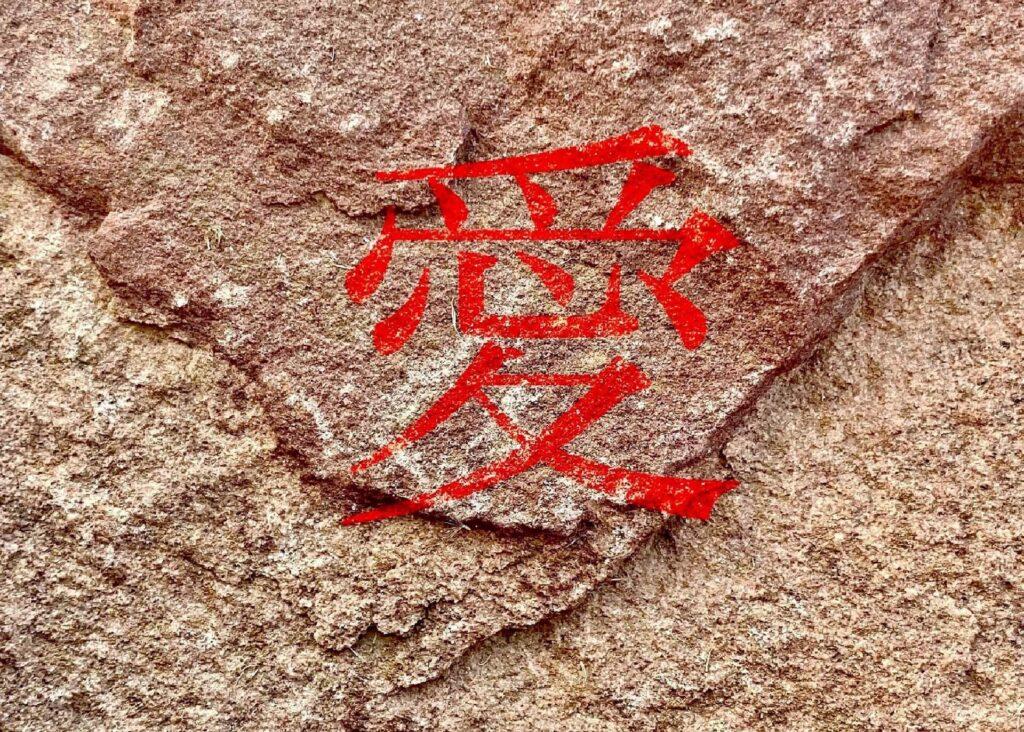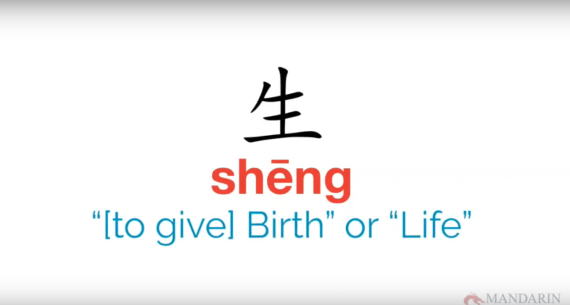How to Express Your Love in Chinese

Chinese culture is very different from Western culture when it comes to love. Many Chinese couples are still very reserved. Unlike in other languages, you’ll rarely hear a Chinese person say “I love you,” at least not in Mandarin. (The English phrase has become popular among younger people in China recently.)
With that in mind, let’s look at some of the more common Mandarin love phrases and learn how to express your love in Chinese.
How to say “I love you” in Chinese
If you translate “I love you” into Chinese, you get 我爱你, which is pronounced “wǒ ài nǐ.” Though this is the standard way to express love, most Chinese people consider this an overly sentimental declaration and are likely to express their feelings differently.
You can also use 我爱你 wǒ ài nǐ to say “I love you” to your family members, but again this is not very common in China.
A cultural note: comparing the simplified and traditional Chinese characters for love, notice that the traditional character 愛 includes the radical for heart, 心 (pinyin: xīn), which, to reduce the number of strokes, was removed in the simplified form of the character, 爱.

Express love in Chinese like a native
我喜欢你 – Wǒ xǐhuan nǐ
The Chinese word 喜欢 xǐhuan means “to like,” and the literal translation of 我喜欢你 wǒ xǐhuan nǐ is “I like you.”
When used to express feelings for a romantic partner, however, the phrase usually means “I love you” in Mandarin–it’s probably the most standard translation of “I love you.”
Adding the adverb 好 hǎo before 喜欢 xǐhuan intensifies the adjective, so the sentence 我好喜欢你 wǒ hǎo xǐhuan nǐ means “I really like you” or “I love you so much” in Chinese.
我想你 – Wǒ xiǎng nǐ
The phrase 我想你 wǒ xiǎng nǐ means both “I miss you” and “I’m thinking (of) you.” It’s a popular way of expressing your affection in Mandarin Chinese.
Though you can use the phrase with a close friend or family member, 我想你 wǒ xiǎng nǐ is most commonly used between people who are romantically involved.
If you write or say the phrase to someone you haven’t seen in a while, it is most likely to be interpreted to mean “I miss you,” whereas if you saw your girlfriend or boyfriend only yesterday, 我想你 wǒ xiǎng nǐ will usually mean “I’m thinking of you.” How the phrase is understood depends on context.
You might also hear 想 xiǎng used in a question, for example:
你想我吗?
Nǐ xiǎng wǒ ma?
Do you miss me?

我对你感兴趣 – Wǒ duì nǐ gǎn xìngqù
If you learn Chinese at school, you’ll probably encounter the Chinese words 感兴趣 gǎn xìngqù in a lesson on hobbies and interests. However, just like in English, declaring yourself interested in someone in Chinese is a sign of a blossoming relationship.
The phrase 我对你感兴趣 wǒ duì nǐ gǎn xìngqù (“I’m interested in you“) is a common confession of love in Chinese, especially in the online dating world. After you chat with a potential partner for a while, you can say 我对你感兴趣 wǒ duì nǐ gǎn xìngqù to let that person know that you have feelings for them.
我的心里只有你 – Wǒde xīnli zhǐyǒu nǐ
A combination of the Chinese phrases 我的心里 wǒde xīnli (“in my heart”) and 只有你 zhǐyǒu nǐ (“there is only you”), 我的心里只有你 wǒde xīnli zhǐyǒu nǐ (“you’re the only one in my heart“) is a very romantic way to express your feelings for your loved one.
Though you are free to use this sentence in spoken Chinese, it is uncommon to find such a direct expression of love in Mandarin outside of the written language, except perhaps at a wedding or anniversary. 我的心里只有你 wǒde xīnli zhǐyǒu nǐ is more commonly encountered in writing.
我会一直陪着你 – Wǒ huì yīzhí péizhe nǐ
The Chinese word 陪 péi has many meanings, including “to add to,” “to help,” or “to keep someone company.” 我会陪着你 wǒ huì péizhe nǐ means “I’ll accompany you” or “I’ll go with you.”
Add 一直 yīzhí when you want to improve the phrase and make it more romantic, adding the nuance of “always.”
You can translate 我会一直陪着你 – wǒ huì yīzhí péizhe nǐ into English as “I’ll always be with you” or “I’ll always be by your side.” Saying this to your girlfriend or boyfriend is a sign that you are serious about the relationship and want to take things further.

Saying it with numbers
The more you learn Chinese, the more you enjoy the Chinese fascination with numbers. Some numbers are considered lucky in Chinese, while others are deemed inauspicious or even dangerous.
Whether a number is thought lucky or unlucky may be due to its pronunciation, the character and stroke order, or other associations in the Chinese mind.
For example, the number 4 (四 sì) is avoided by many because the Chinese word for death (死 sǐ) has the same pinyin–though the tones are different. So don’t worry if you can’t find the fourth floor in your hotel or apartment block—it’s probably not there!
Similarly, the number 8 (八 bā) is considered lucky because it sounds similar to the Chinese word meaning “to prosper” or “to get rich” (发 fā[cái]).
In addition, the number 88 bears a visual resemblance to the Chinese characters in the shuāng xǐ (“double happiness”) symbol, 囍, a popular decorative design made up of two stylized characters of the Chinese word for happiness or joy (喜 xǐ).
Since Chinese people do not like to declare their love as directly as we might in English, using numbers as a sign for specific expressions of love has become popular, especially on online chat platforms or e-mail.
Some of these number combinations get pretty creative and obscure, and the meaning may not be readily apparent to Mandarin Chinese language learners in other parts of the world.
五二零 (520) – Wǔ’èr líng
520 in Chinese is short for “I love you.” Why? Because to the native ear五二零 wǔ’èr líng sounds similar to 我爱你 wǒ ài nǐ, the most common way to translate “I love you” in Mandarin.
This numerical sign for love has become so widely known in China that the date of May 20th (5.20) is now popularly celebrated as another “Chinese Valentine’s Day” – in addition to the more traditional 七夕节 Qīxì Jié.
[Image]
五三零 (530) – Wǔ sān líng
Following the same logic, the 五 wǔ in 五三零 wǔ sān líng stands for 我 wǒ (“I”) and the 零 líng stands for 你 nǐ (“you”). But what about the number three sandwiched in between?
In Chinese, 三 is pronounced “sān,” which sounds a little like the Chinese word 想 xiǎng. Hence, Chinese people write 530 as a sign for 我想你 wǒ xiǎng nǐ, which means “I miss you” or “I’m thinking of you.”
七七零 (770) – Qī qī líng
Are you starting to learn how this works? As usual, the 0 in 770 here stands for 你 nǐ (“you.”) In Chinese, the number seven is pronounced qī, which sounds similar to the Chinese word 亲 qīn, which means “kiss.”
Writing 七七零 qī qī líng in an e-mail or text message is a cute way of sending your Chinese lover a kiss.
八八零 (880) – Bā bā líng
As 七 qī is to 亲 qīn, 八 bā is to 抱 bào, the Chinese word meaning “hug” or “embrace.” You can write 880, 八八零 bā bā líng, to give a digital hug to the one you care about, whether that be a lover or a friend in need.

Pet names for a Chinese lover
The literal translation of “my love” or “my lover” in Chinese is 我的爱人 wǒde àirén, but you will rarely hear this used by a native speaker. So instead, you can choose a pet name for your Chinese girlfriend or boyfriend from the vocabulary listed below.
亲爱的 – Qīn’ài de
If you learn Chinese at school or university, your professor may teach you 亲爱的 qīn’ài de as part of another phrase, for example, 亲爱的祖国 qīn’ài de zǔguó (“one’s beloved country”) or 亲爱的朋友们 qīn’ài de péngyǒumen (“dear friends”).
You can use 亲爱的 qīn’ài de as a stand-alone phrase to address your lover or sweetheart as “darling” or “dear.” It’s also used to say “my love” in Chinese letters when you write a text message.
宝宝 / 宝贝 – Bǎobǎo / Bǎobèi
The Chinese character 宝 bǎo depicts a building (宀) with precious gems or jade (玉) inside. It means “treasure” or “precious.”
The Chinese words 宝宝 bǎobao and bǎobèi both mean “baby” and, like in English, can refer to both an infant child as well as someone’s lover, partner, or boyfriend/girlfriend.

心肝 – Xīngān
心肝 xīngān is an unusual phrase that literally means “heart and liver.” The words might sound a little gross to the Western ear, but you can understand the phrase as akin to “my heart and soul” in English.
You cannot live without your heart or your liver (or your soul, if such a thing exists), and calling someone 心肝 xīngān in Chinese expresses the same sentiment—that you cannot live without them. It’s best used when speaking to someone you cherish and care deeply about, such as your wife or husband.
心肝 xīngān is often combined with 宝贝 bǎobèi to form 心肝宝贝 xīngānbǎobèi, a familiar way for parents to refer to their children.
In Chinese culture, people express love through actions as much as words. You might decide to demonstrate your love through touch, holding your partner’s hand, or cuddling up together when you have a moment alone.
It never hurts to do something nice for that special person in your life. Try cooking their favorite meal or doing a chore for them that you know they particularly dislike. This way, you’re sure to win their love, or at least their gratitude.
Instead of expressing your love directly, you can give your partner a compliment. Few women in this world resent being complimented on their looks, so telling your partner 你很美丽 nǐ hěn měilì (“you’re so beautiful”) or 你今天穿着很搭 nǐ jīntiān chuānzhuó hěn dā/你衣服搭配的很好看 nǐ yīfu dāpèi de hěn hǎokàn (“you look so good in those clothes”) will usually go down well.
For the women out there, saying 你好帅 nǐ hǎo shuài (“you’re so handsome”) to your husband or boyfriend is sure to cause a smile.
As always, listen to how native speakers use these love phrases and practice using them in a similar context. Learning some Chinese nicknames for your significant other and using them where appropriate will also come in handy.
Finally, writing a love letter to someone in Chinese is another excellent way to capture their attention—and their heart. Though it’s uncommon to declare your love so directly in spoken Chinese, you should feel free to use 我爱你 wǒ ài nǐ to write “I love you” in Chinese letters.








